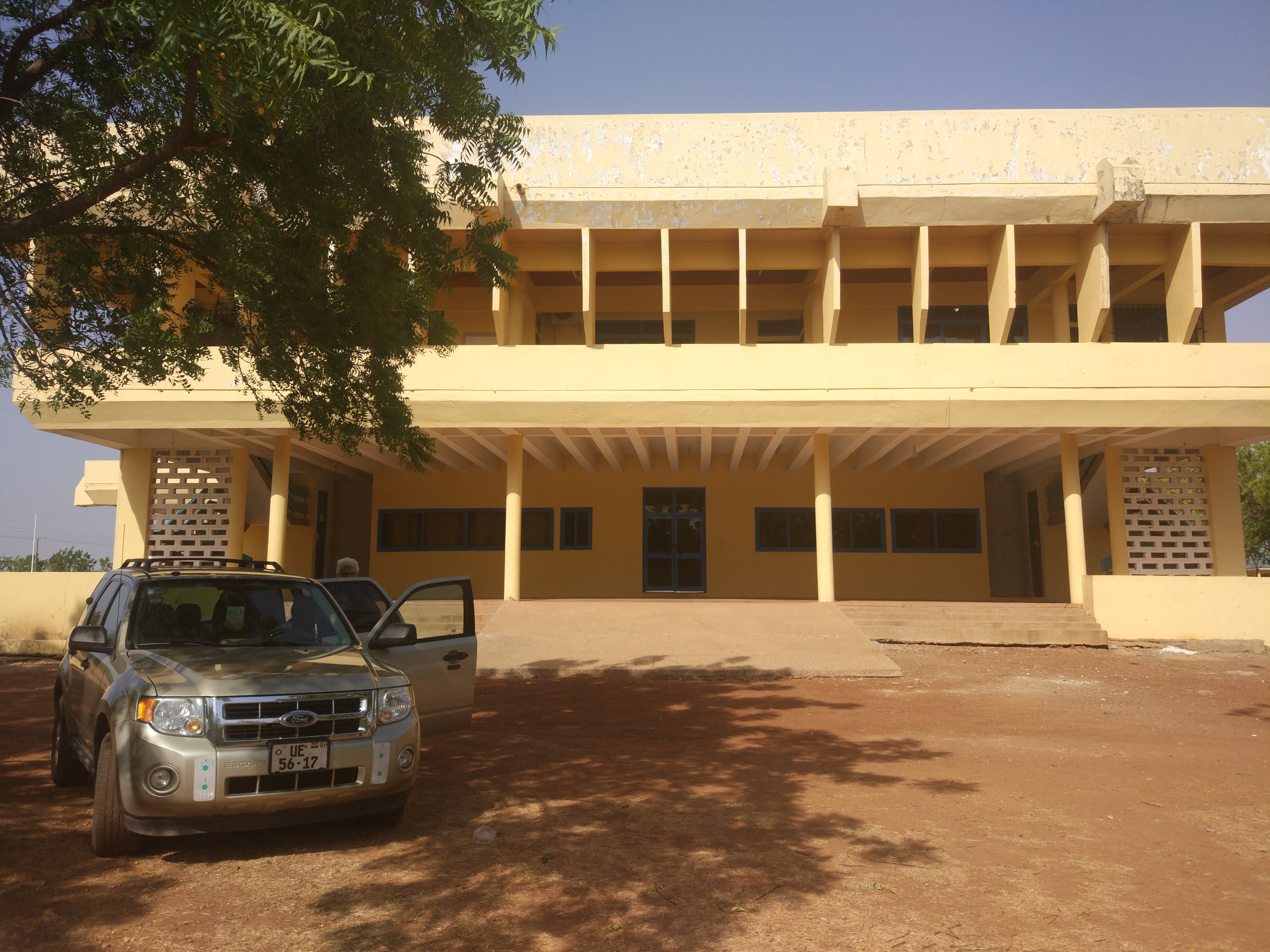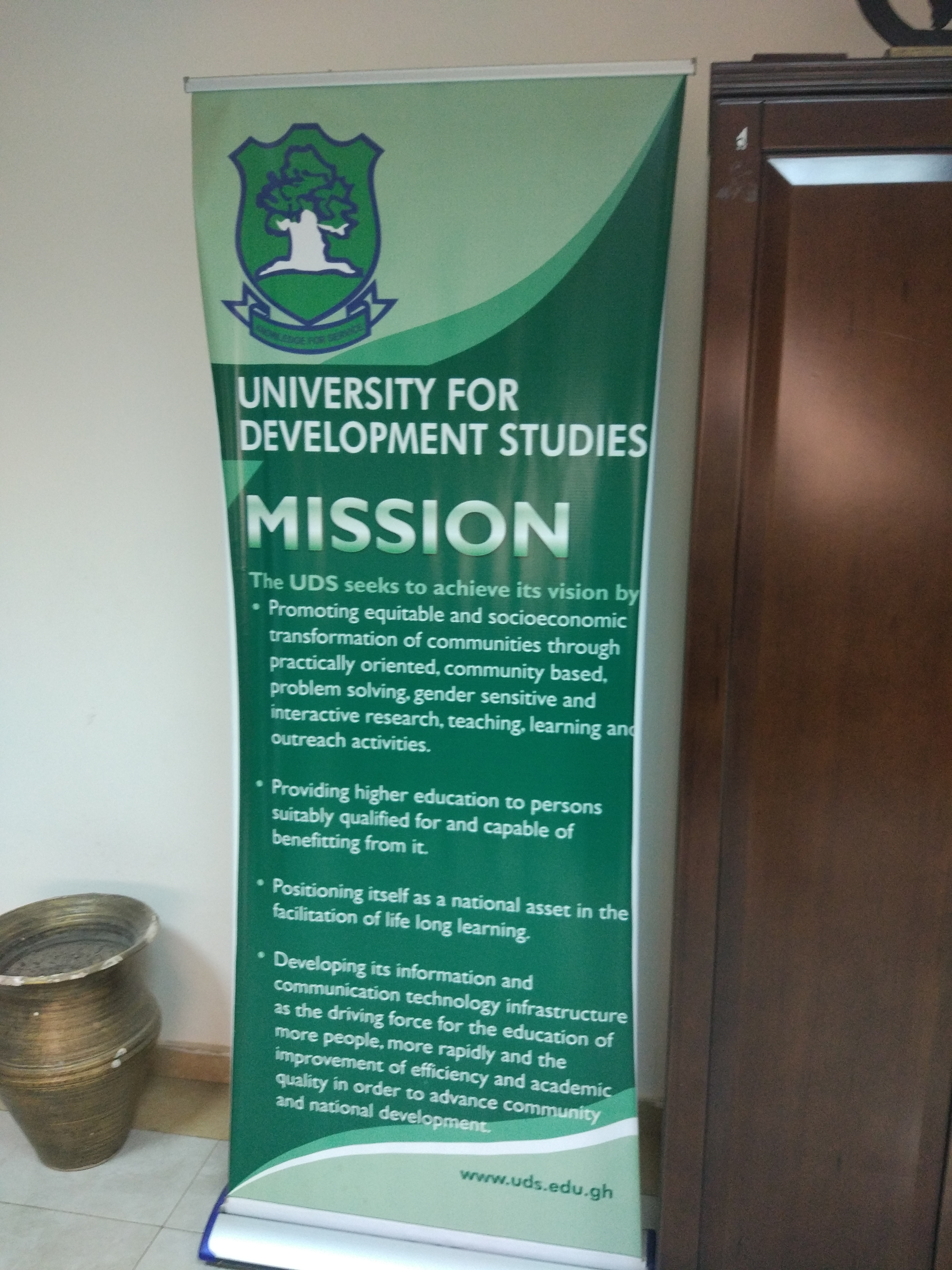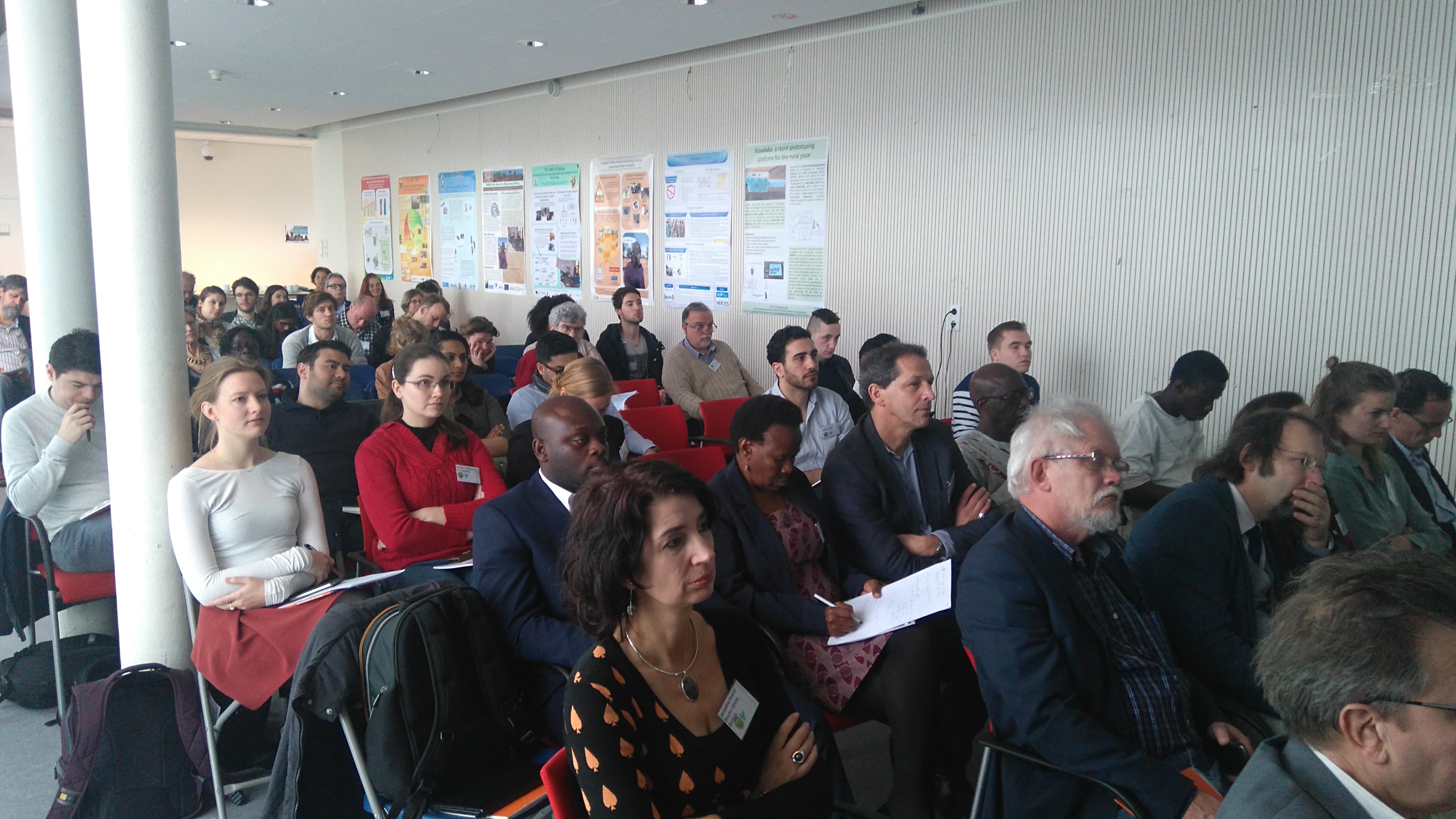[crosspost from victordeboer.com]
As part of the ongoing W4RA efforts, the VU ICT4D team visited West-Africa once more. This time, we visited Mali, Burkina Faso and Ghana. I personally went to Ghana to talk to external PhD candidate Francis Dittoh and his colleagues at the University of Development Studies (UDS) and the SARI institute in Tamale, in Northern Ghana.
After first flying to Accra, I first was able to have a short meeting with my good friend Nana Baah Gyan, who is now an ICT for Development expert in that city. I then flew to Tamale,. where we met up with Francis to talk about his PhD work on information systems for rural farmers.
After colleagues Anna Bon and Hans Akkermans arrived from Burkina Faso, we met with UDS vice-chancellor as well as the Dean of the Faculty of Engineering to discuss the ongoing collaboration of W4RA and VU with Prof Saa Dittoh, and Francis. We hope to formalize these collaborations in a Memorandum of Understanding between the two universities. We also discuss the ambition of UDS to set up a curriculum in software engineering as part of the undergraduate programs. Such a programme would include a yearly community service courses, where students go into the field. This is very interesting for us as it aligns well with the goals of the ICT4D course at VU. The programmes also include a French language course to allow for smoother cooperation with other Sahel countries (specifically Burkina Faso).
We also visited the Savanna Agriculture Research Institute (CSIR-SARI). The situation is comparable to that in Burkina. SARI governs the use of hybrid seeds, which cannot be reused year by year but result in a higher yield. SARI is interested in educating farmers on how to handle these seeds (fertilization, planting etc). There are three classes of seeds: 1) breeder seeds – grown at research institutes, 2) foundation seeds and 3) certified seeds – produced by ~1000 farmers monitored by ~10 seed companies, and certified by an external agency.
Potentially interesting for us is their connection to rural farmers. SARI now mostly does this through extension workers from the ministry of Agriculture. However, because of budget cuts, these are now reduced to roughly 1 extension worker to 2,500 farmers. Therefore, SARI is open to the idea of commucating with farmers directly, for example through a voice-based system. An interesting opportunity could be two-track strategy with a smartphone app for extension workers to allow them to do their work better and a companion voice app for farmers. SARI is very much interested in developing applications in a co-creation process. This would match the research proposal that Francis has submitted to SARI and UDS.
A personal highlight was the 10hr road trip that Francis offered me to join instead of taking a flight back to Accra. Ghana is a beautiful country that changes before your eyes on such a trip. My sincere hope is that the proposed collaborations will lead to many more visits to this great country. 






